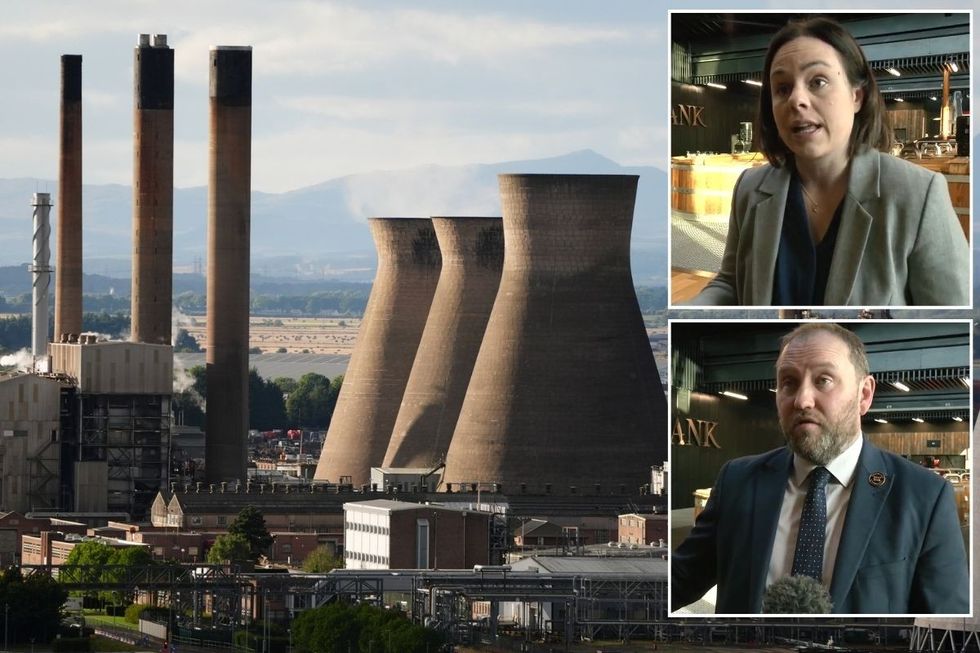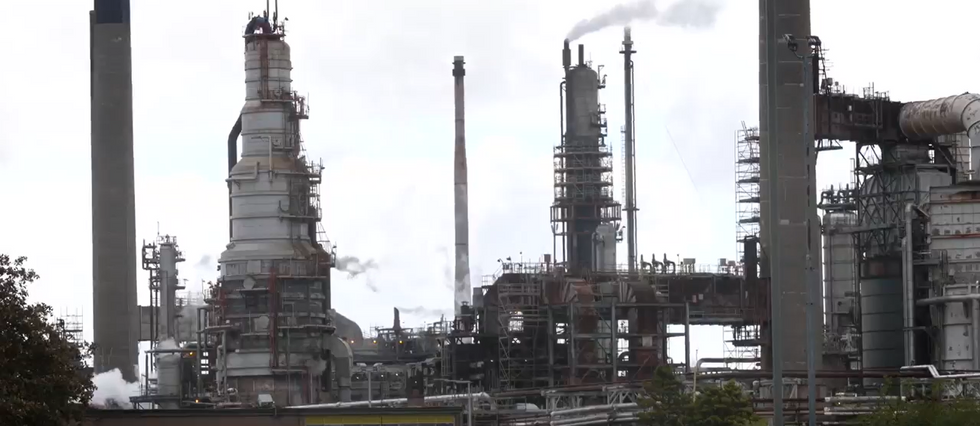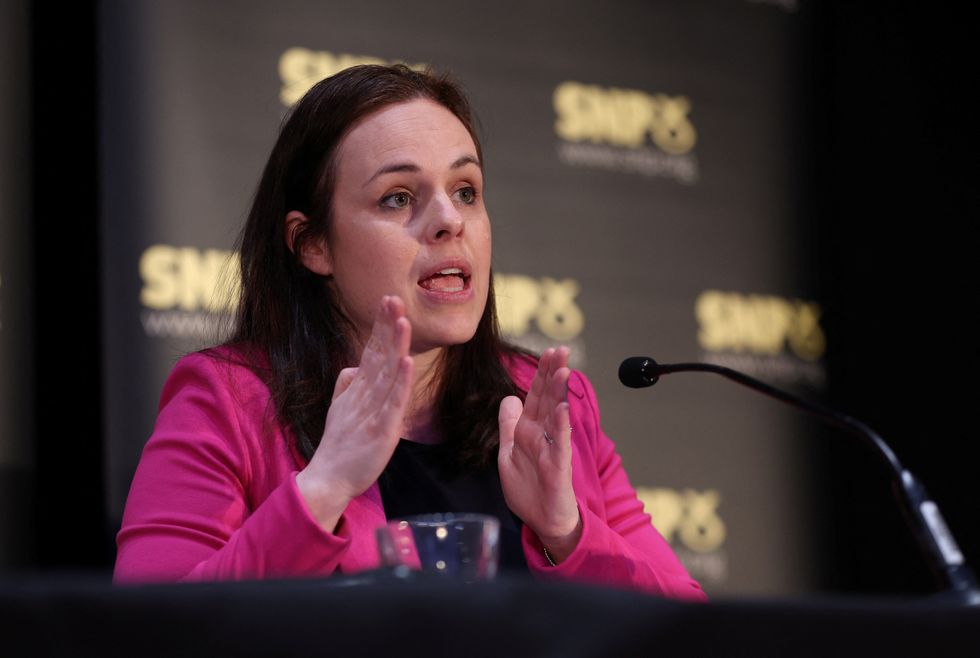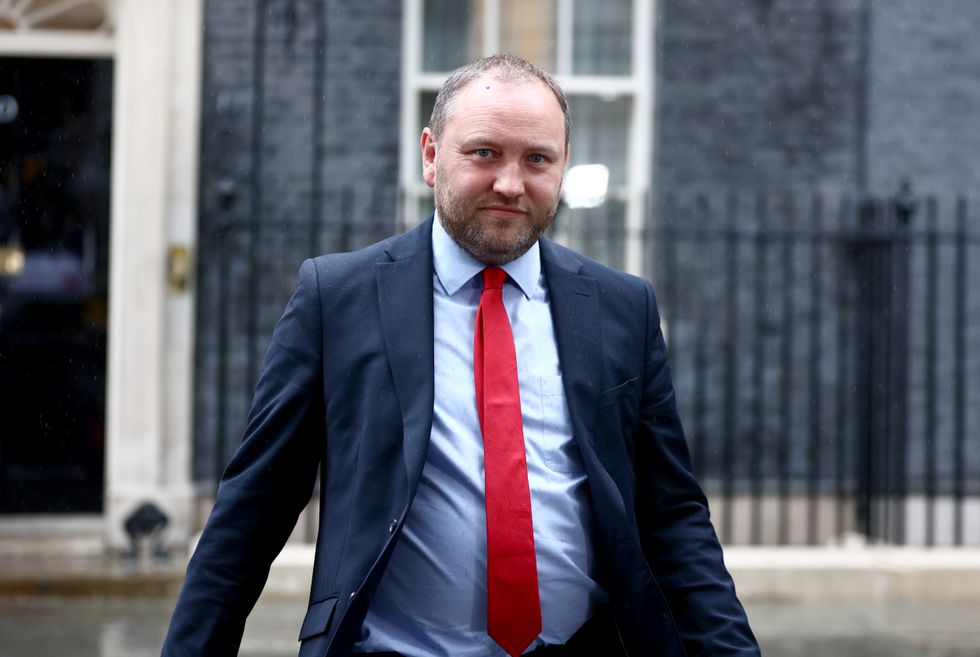A landmark funding commitment has been jointly signed by the Scottish and UK Governments to herald fresh growth into Central Scotland.
The £100million Falkirk and Grangemouth Growth Deal will green light 11 projects planned to develop the region and is expected to bring up to 1,660 new jobs over the next decade.
Scottish Secretary Ian Murray and Deputy Scottish First Minister Kate Forbes joined Falkirk Council leader Cecil Mieklejohn in putting pen to paper at Rosebank Distillery.
Both Holyrood and Westminster contributed £40million investment, with a further £10million coming from the UK Department of Energy Security & Net Zero and £10million more from the Scottish Government’s Greener Grangemouth programme.

Grangemouth secures £148m growth deal as Net Zero remains at ‘forefront’ of SNP agenda
PA/GB NEWS
Some of the 11 projects include Carbon Dioxide Utilisation Centre and a Bioeconomy Accelerator Pilot Plant in Grangemouth, while Forth Valley College will receive a skills transition centre and there will be additional funding for the Falkirk Arts Centre.
In addition to the £100million from both Governments, Falkirk Council will be investing £45million in addition to £3.7million from Scottish Canals, bringing the overall investment to £148.7million.
Deputy First Minister Kate Forbes said: “The Falkirk and Grangemouth region has a rich history with a strong industrial heritage, a proud community and significant tourist attractions.
“The Scottish Government’s £50million investment will deliver projects to ensure the area continues to thrive, bringing jobs, active travel links, future skills training and new arts and cultural spaces.
LATEST DEVELOPMENTS:

Grangemouth Refinery
GB News
“The Growth Deal will support the region to grasp the opportunities of the transition to net zero and remain at the forefront of innovation and manufacturing in Scotland, complemented by a community-led programme of projects in Grangemouth.”
When asked about the compatibility of a push for green jobs and a town with a 100 year history producing fossil fuels, Forbes said: “This growth deal has £100million of investment in 11 different projects, which we know will create hundreds of jobs as well as unlock a lot of economic benefits, £628million.”
She continued: “The hope is that that targeted investment delivers economic prosperity for this community, not just in the coming months, but for decades to come.
Mieklejohn also said a new skill transition centre at Forth Valley College would add significant weight to assurances that jobs be filled from the local community.

Kate Forbes
GETTY
“If we can give them the tools,” she said, “then they will be able to have that opportunity to be part of that just transition, to create new technologies and be a part of writing Scotland’s future.”
Murray separately said that the Falkirk and Grangemouth Growth Deal was “part of the £1.4billion the UK Government is investing in Scottish growth projects over the next decade.”
He claimed: “Growth is a key mission for the UK Government and a top priority of the Scotland Office.
“Our funding, coupled with investment from the other partners, will drive renewal and generate more than 1,000 jobs and hundreds of millions of pounds of economic benefits for these communities.
“The area’s economic potential is huge and I look forward to seeing this and many other examples of partnership working deliver growth for Scotland.”
 Secretary of State for Scotland Ian Murray MPPA
Secretary of State for Scotland Ian Murray MPPA The signing comes just days after Petro Ineos re-confirmed the closure of Grangemouth Distillery in March 2025 in front of a Scottish Parliamentary committee.
Owner Sir Jim Ratcliffe has previously outlined the plant’s £385,000 a day losses.
That number was reiterated again this week with bosses telling parliamentarians that with no buyer and no prospect of Government intervention, next year’s closure was a certainty.
After the plant closes in March, a transition phase will begin to transform the plant into a port and instead of converting oil to petrol and diesel, it will import fuel from the Netherlands and store it before being distributed.
Ratcliffe has blamed the closure of the 100-year-old plant on the quickening transition to hybrid and electric vehicles along with insurmountable competition coming from the Middle East and China.